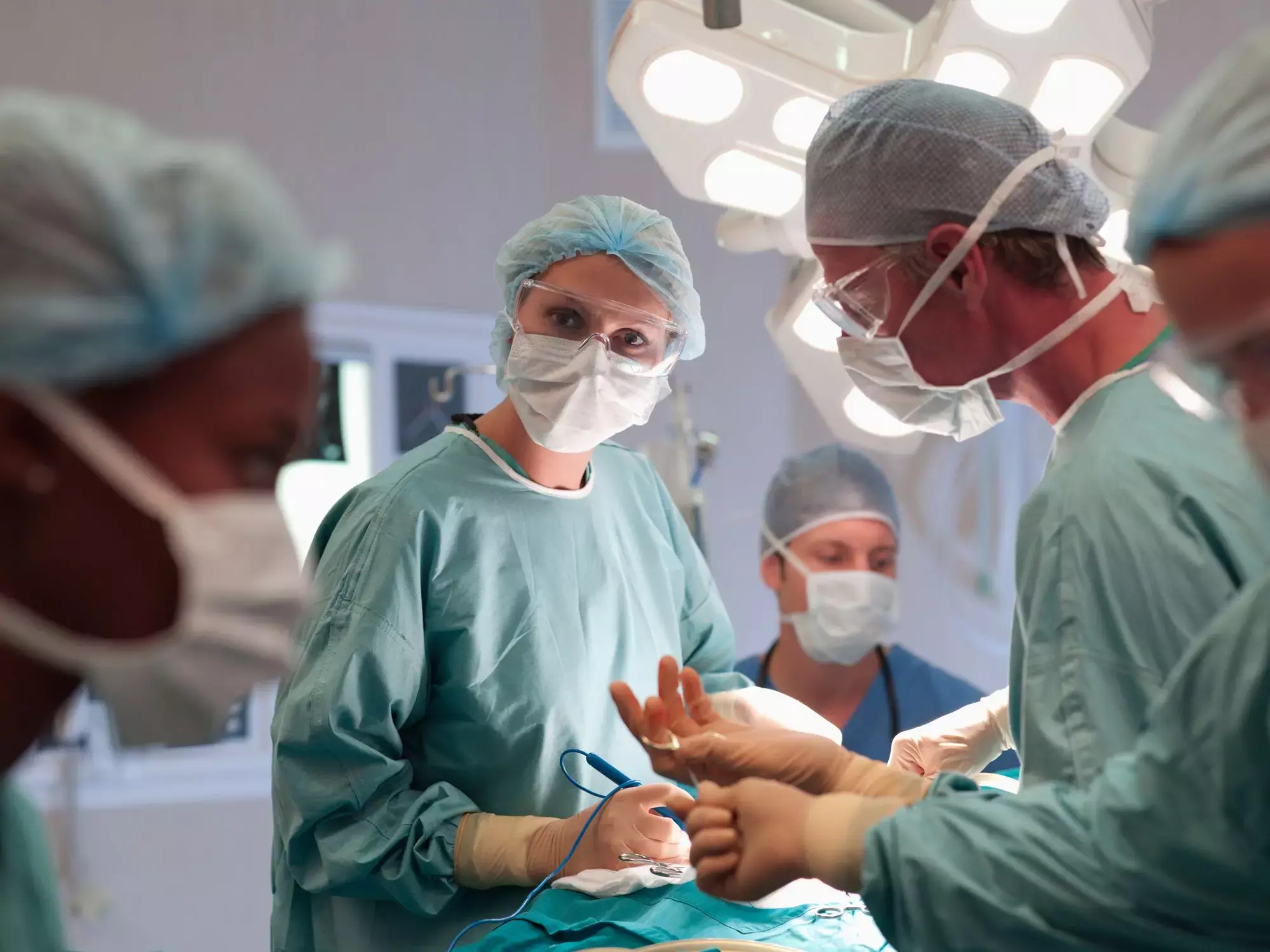- Home
- Medical news & Guidelines
- Anesthesiology
- Cardiology and CTVS
- Critical Care
- Dentistry
- Dermatology
- Diabetes and Endocrinology
- ENT
- Gastroenterology
- Medicine
- Nephrology
- Neurology
- Obstretics-Gynaecology
- Oncology
- Ophthalmology
- Orthopaedics
- Pediatrics-Neonatology
- Psychiatry
- Pulmonology
- Radiology
- Surgery
- Urology
- Laboratory Medicine
- Diet
- Nursing
- Paramedical
- Physiotherapy
- Health news
- Fact Check
- Bone Health Fact Check
- Brain Health Fact Check
- Cancer Related Fact Check
- Child Care Fact Check
- Dental and oral health fact check
- Diabetes and metabolic health fact check
- Diet and Nutrition Fact Check
- Eye and ENT Care Fact Check
- Fitness fact check
- Gut health fact check
- Heart health fact check
- Kidney health fact check
- Medical education fact check
- Men's health fact check
- Respiratory fact check
- Skin and hair care fact check
- Vaccine and Immunization fact check
- Women's health fact check
- AYUSH
- State News
- Andaman and Nicobar Islands
- Andhra Pradesh
- Arunachal Pradesh
- Assam
- Bihar
- Chandigarh
- Chattisgarh
- Dadra and Nagar Haveli
- Daman and Diu
- Delhi
- Goa
- Gujarat
- Haryana
- Himachal Pradesh
- Jammu & Kashmir
- Jharkhand
- Karnataka
- Kerala
- Ladakh
- Lakshadweep
- Madhya Pradesh
- Maharashtra
- Manipur
- Meghalaya
- Mizoram
- Nagaland
- Odisha
- Puducherry
- Punjab
- Rajasthan
- Sikkim
- Tamil Nadu
- Telangana
- Tripura
- Uttar Pradesh
- Uttrakhand
- West Bengal
- Medical Education
- Industry
Soothing words and music during surgery may reduce postoperative pain, opioid need: BMJ

Playing recordings of soft music or soothing words through earphones when patients are under general anesthesia appears to reduce pain levels and could help them reduce the need for opioids after surgery, according to a study published in BMJ.
The researchers conducted a blinded randomised controlled study to investigate the effect of therapeutic suggestions played to patients through earphones during surgery on postoperative pain and opioid use.
Around the globe, more than 200 million people have surgery each year, mostly under general anaesthesia.
General anaesthesia is thought of as a state of no sensations, but while awareness is rare, there is some evidence for a state of 'connected consciousness' (an ability to perceive the external environment) while under general anaesthesia.
If true, could using this perception in a positive way during surgery help to reduce the need for opioids 24 hours after surgery?
To find out, researchers carried out a trial involving 385 patients (aged 18-70 years) undergoing planned (elective) surgery of 1-3 hours duration under general anaesthesia at five hospitals in Germany.
Patients were randomly split into two groups (191 in the intervention group and 194 in the control group). Factors such as type and duration of surgery, pain before surgery, and use of drugs during surgery were similar in both groups.
The intervention consisted of an audiotape of background music and positive suggestions based on hypnotherapeutic principles, which was played repeatedly for 20 minutes followed by 10 minutes of silence to patients through earphones during general anaesthesia.
Patients in the control group were assigned to a blank tape.
Before surgery, patients in both groups reported similar pain levels, but during the first 24 hours after surgery, pain scores were consistently and significantly lower in the intervention group, with an average reduction of 25%.
Compared with the control group, the intervention led to a small but significant reduction in opioid consumption during the first 24 hours after surgery.
The number of patients requiring any opioid after surgery was also reduced in the intervention group: 121 of 191 (63%) patients in the intervention group versus 155 of 194 (80%) in the control group - a 16% absolute reduction.
No adverse events were reported and the researchers estimate that, for every six patients receiving the intervention, one would avoid the need for postoperative opioids.
These results suggest that therapeutic suggestions played through earphones during general anaesthesia "could provide a safe, feasible, inexpensive, and non-drug technique to reduce postoperative pain and opioid use, with the potential for more general use," say the researchers.
They call for further evaluation of the technique, particularly in more invasive and painful surgical procedures, and suggest that surgeons and anaesthetists "should be careful about background noise and conversations during surgery."
These findings, along with those of other recent randomised trials, have begun to shine a spotlight on the possibility that the subconscious might be an important target for improving patient experience and outcomes, write Canadian researchers in a linked editorial.
However, before such findings are widely implemented, some limitations should be addressed, and future trials should involve a wider population of patients with a focus on important, patient reported measures of recovery, they say.
"Although multicentre trials often bring a definitive answer to a research question, this trial is very much the beginning of an important line of inquiry that may change future practice," they conclude.
https://www.bmj.com/content/371/bmj.m4284
Hina Zahid Joined Medical Dialogue in 2017 with a passion to work as a Reporter. She coordinates with various national and international journals and association and covers all the stories related to Medical guidelines, Medical Journals, rare medical surgeries as well as all the updates in the medical field. Email: editorial@medicaldialogues.in. Contact no. 011-43720751
Dr Kamal Kant Kohli-MBBS, DTCD- a chest specialist with more than 30 years of practice and a flair for writing clinical articles, Dr Kamal Kant Kohli joined Medical Dialogues as a Chief Editor of Medical News. Besides writing articles, as an editor, he proofreads and verifies all the medical content published on Medical Dialogues including those coming from journals, studies,medical conferences,guidelines etc. Email: drkohli@medicaldialogues.in. Contact no. 011-43720751


